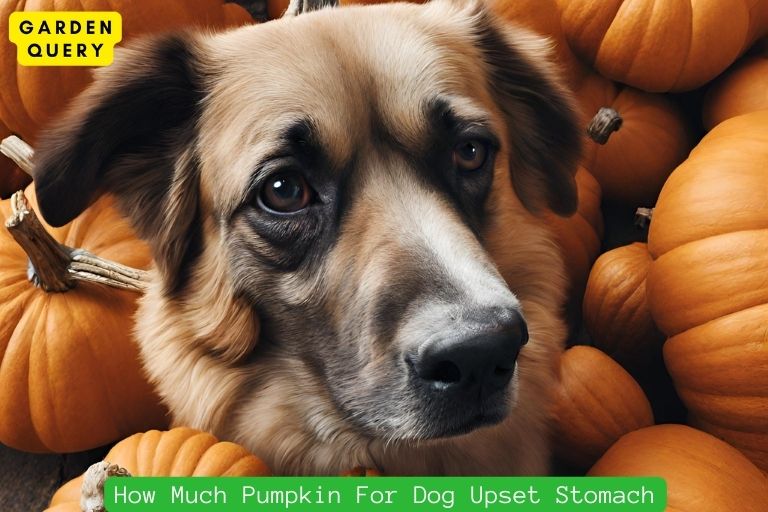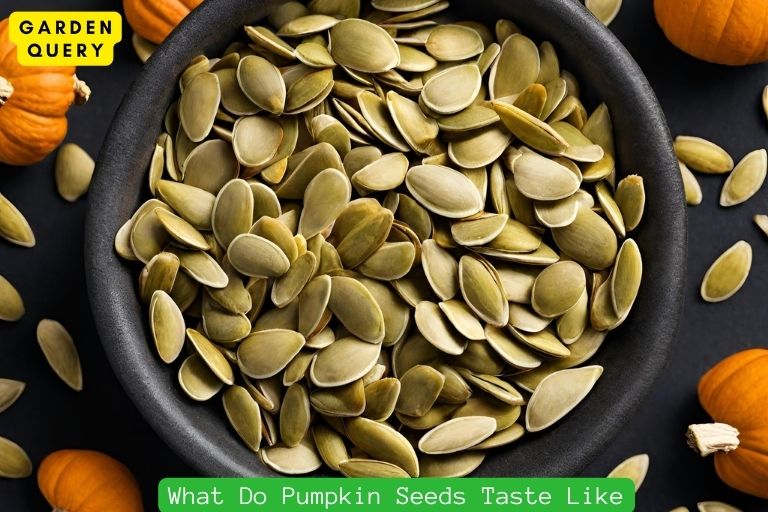How Much Pumpkin For Dog Upset Stomach?
Pumpkin as a Remedy for Dog Upset Stomach
If your furry friend is experiencing an upset stomach, you may be wondering how you can provide them with some relief. One natural remedy that is often recommended for dogs with digestive issues is pumpkin. Not only is pumpkin delicious and nutritious, but it also has several benefits for soothing a dog’s upset stomach. Let’s take a closer look at why pumpkin can be beneficial and how to properly incorporate it into your dog’s diet.

Benefits of Pumpkin for Dog Upset Stomach
Pumpkin offers several advantages when it comes to alleviating an upset stomach in dogs:
- Dietary Fiber: Pumpkin is rich in dietary fiber, which can help regulate digestion and promote healthy bowel movements. The fiber content in pumpkin can aid in firming up loose stools or relieving constipation.
- Hydration: Pumpkin has a high water content, providing much-needed hydration for a dog experiencing an upset stomach. This additional moisture can help in alleviating symptoms such as vomiting or diarrhea.
- Gentle on the Stomach: Pumpkin is a gentle and easily digestible food. It can provide a soothing effect on the digestive system, reducing inflammation and calming an upset stomach.
Guidelines for Feeding Pumpkin to Dogs with Upset Stomach
- Choose Pure Pumpkin: Opt for plain, pureed pumpkin without any additives or sugar. Avoid using canned pumpkin pie filling, as it may contain spices and sweeteners that are harmful to dogs.
- Start with Small Amounts: Introduce pumpkin gradually into your dog’s diet. Begin with a small amount, such as a teaspoon or two, and observe how your dog’s stomach reacts. Gradually increase the quantity as needed.
- Consult Your Veterinarian: If your dog has a pre-existing medical condition or is on medication, it is essential to consult your veterinarian before adding pumpkin to their diet. They can provide specific instructions tailored to your dog’s needs.
- Monitor Stool Consistency: Keep an eye on your dog’s stool consistency after incorporating pumpkin into their diet. If the stool becomes too firm or there are any adverse effects, such as continued vomiting or worsening diarrhea, discontinue pumpkin and consult your veterinarian.
If your dog’s symptoms persist or worsen, it is crucial to seek professional advice from your veterinarian.
Just be sure to choose plain pumpkin, start with small amounts, and monitor your dog’s response. With the right approach, pumpkin can help your beloved furry friend feel better in no time.
Pumpkin Dosage for Dog Upset Stomach
Seeing your furry friend suffer from an upset stomach can be distressing, but fortunately, there’s a natural remedy that may help: pumpkin. Adding pumpkin to your dog’s diet can provide relief from digestive issues such as diarrhea or constipation. However, determining the right amount of pumpkin and understanding the precautions is crucial to ensure your dog’s well-being.
Determining the Right Amount of Pumpkin for Dogs
The suggested amount of pumpkin to give your dog depends on their size and the severity of their digestive issue. As a general guideline, the following dosage recommendations can be followed:
- Small Dogs: For dogs weighing less than 15 pounds, start with adding 1 teaspoon of canned pumpkin to their food per day. You can gradually increase the amount up to 2 teaspoons if necessary.
- Medium Dogs: Dogs weighing between 15 to 35 pounds can be given 1 to 2 tablespoons of canned pumpkin per day. Again, gradually increase the amount as needed.
- Large Dogs: If your dog weighs over 35 pounds, you can start with 2 to 5 tablespoons of canned pumpkin per day and adjust accordingly.
Considerations and Precautions When Feeding Pumpkin to Dogs
- Consult with Your Veterinarian: It’s always a good idea to consult with your veterinarian before adding anything new to your dog’s diet, especially if your dog has underlying health conditions or is on medication.
- Choose Pure Pumpkin: Make sure you use plain canned pumpkin without any added sugars, spices, or preservatives. These additives may do more harm than good to your dog’s digestive system.
- Monitor the Stool: Keep an eye on your dog’s stool consistency and frequency. If the diarrhea persists or becomes worse, discontinue the pumpkin and seek veterinary advice.
- Avoid Overfeeding: While pumpkin can help regulate bowel movements, overfeeding can lead to the opposite problem – constipation. Stick to the recommended dosage and observe your dog’s response.
- Pumpkin is Not a Cure-All: While pumpkin can be effective for mild digestive issues, it’s important to address the underlying cause of your dog’s upset stomach. If symptoms persist or worsen, consult with your veterinarian for a proper diagnosis and treatment plan.
Remember, every dog is unique, and what works for one may not work for another. With proper care and attention, your furry friend will be back to their healthy, happy self in no time.
Pumpkin Recipes for Soothing Dog Upset Stomach
Pumpkin and Rice Boiled Meal Recipe
If your dog is experiencing an upset stomach and you’re looking for a natural and gentle remedy, consider trying a pumpkin and rice boiled meal.
To prepare this simple recipe, follow these steps:
- Start by cooking a cup of rice according to the package instructions. Make sure to use plain, white rice as it is the easiest for dogs to digest.
- In a separate pot, boil or steam half a cup of plain, unsweetened canned pumpkin. Canned pumpkin is preferred over pumpkin pie filling, as it contains no added sugars or spices that could upset your dog’s stomach.
- Once both the rice and pumpkin are cooked, mix them together in a bowl and let it cool down to room temperature. Make sure the mixture is well-blended.
- Feed your dog small portions of the pumpkin and rice boiled meal. Start with small amounts to see how your dog’s stomach reacts, and gradually increase the serving size if your dog tolerates it well.
- You can repeat this meal two to three times a day for a couple of days until your dog’s upset stomach improves. However, it is always a good idea to consult with your veterinarian if the symptoms persist or worsen.
Pumpkin Smoothie Recipe for Dog Upset Stomach
Another way to incorporate pumpkin into your dog’s diet is by making a pumpkin smoothie.
To make a pumpkin smoothie, follow these steps:
- In a blender, combine half a cup of plain, unsweetened canned pumpkin, half a cup of plain, unsweetened yogurt, and half a cup of water. Make sure to use yogurt that does not contain any artificial sweeteners, as they can be harmful to dogs.
- Blend the ingredients until they are well-mixed and smooth.
- Pour the pumpkin smoothie into your dog’s bowl and serve it at room temperature.
- You can offer the pumpkin smoothie to your dog as a treat or as a replacement for their regular meal if they’re not interested in solid food. However, it is important to remember that the smoothie should not replace their regular diet in the long term, as dogs need a balanced and complete diet to stay healthy.
Alternative Remedies for Dog Upset Stomach
Exploring Other Natural Remedies for Dog Upset Stomach
- Plain boiled chicken and rice: This bland diet is gentle on the stomach and can help firm up loose stools. Cook plain chicken breast and plain white rice, and feed small portions to your dog until their stomach settles.
- Probiotics: Adding probiotics to your dog’s diet can promote a healthy digestive system by providing beneficial bacteria. Probiotic supplements or certain yogurt brands formulated for dogs can help restore the balance of good bacteria in their gut.
- Ginger: Ginger has anti-inflammatory properties and can aid in soothing an upset stomach. You can feed your dog a small amount of fresh ginger, but avoid giving them ginger in powdered or processed form.
- Herbal teas: Chamomile and peppermint teas can have a calming effect on a dog’s stomach. Brew the tea, let it cool, and offer it to your dog in small amounts throughout the day.
Consulting a Veterinarian for Severe Cases
- Persistent vomiting or diarrhea: Frequent vomiting or diarrhea can quickly lead to dehydration and electrolyte imbalances, which can be dangerous for dogs.
- Refusal to eat or drink: Loss of appetite is a concerning sign and may indicate an underlying medical condition.
- Abdominal pain: If your dog is showing signs of discomfort, such as whining, panting, or a hunched posture, it’s essential to seek veterinary care.
- Unusual behavior: Lethargy, weakness, or changes in behavior can be indications of a more serious issue.
A qualified veterinarian will be able to conduct a thorough examination, perform diagnostic tests if necessary, and provide appropriate treatment for your dog’s upset stomach.
- Best Therapists In Dallas - February 1, 2024
- Holly Willoughby Husband: Holly Willoughby’s Love Story - January 30, 2024
- Holly Willoughby Dress: 5 Style Secrets and 7 Must-Know Career Milestones - January 30, 2024





